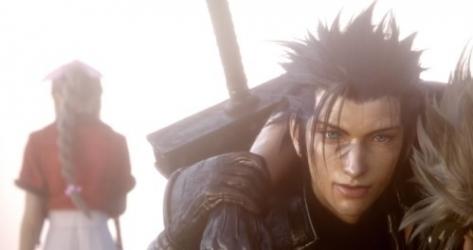
Originally Posted by
Skyblade

I find it hilarious that you use XIII as your argument against turn-based combat.
XIII's problems weren't centered over a lack of gameplay in exchange for story. They were centered around crippling problems with both gameplay and story.
Had XIII properly delivered on the cinematic story, 95% of the fans would not have cared about the gameplay one way or another. The biggest complaints about it were about how badly its story botched.
The biggest complaints about the battle system, on the other hand, were about how restrictive it was. The artificial cap to your "levels" in the Crystarium was complained about far more than the gameplay itself. The biggest complaint about the combat mechanics was the overall lack of interactivity with the system outside of the Paradigms (which is only made worse by the restrictions on how little there is to do before the real options unlock). In fact, the semi-real time nature of the combat hurt this game's systems overall, because it meant that the combat progressed far to quickly to make choosing commands in battle worthwhile. You essentially auto-battle every fight, because choosing commands real-time would result in you taking nearly twice as long to perform each action, and therefore you would find things a lot harder.
Heck, I'd argue that XIII's system wasn't even turn-based. But having a turn-based system had nothing to do with how well the game was received.
Personally, I prefer turn-based by far over real time, because too many real time combat systems boil everything down to reaction time. Turn based lets you relax, breathe, and make decisions. Real time is a reflex test, and if your reflexes aren't good enough, you fail. And then people laugh at you for sucking at games.
Don't make me go on a rant about how many games that build themselves up as being "skill based" are really just reflex based, there are so many examples out there I could point out.
Also, note that turn-based systems are generally well received when they are well executed. There are still tons of fantastic turn based games out there, or more coming out. Bravely Default is using turn based, and is apparently fantastic (I'll be playing the demo later). XCOM: Enemy Unknown and Fire Emblem Awakening make good use of turn-based systems, and Awakening is definitely an RPG. Persona 4 Golden and Shin Megami Tensei IV both used turn-based systems, and have been received incredibly well. And these are just high-profile titles released over the last year.




 Reply With Quote
Reply With Quote






 . A third player attacking while two were doing things through diplomacy wouldn't necessarily be a big problem, considering they might need a real life hour to get their troops even close to the border of the country it wanted to attack, not to mention that the third player wouldn't necessarily know exactly when the two others were talking together anyway.
. A third player attacking while two were doing things through diplomacy wouldn't necessarily be a big problem, considering they might need a real life hour to get their troops even close to the border of the country it wanted to attack, not to mention that the third player wouldn't necessarily know exactly when the two others were talking together anyway.

